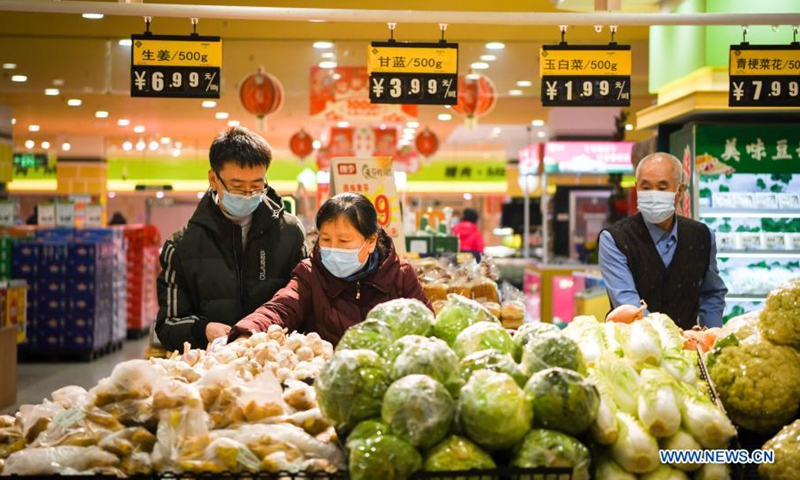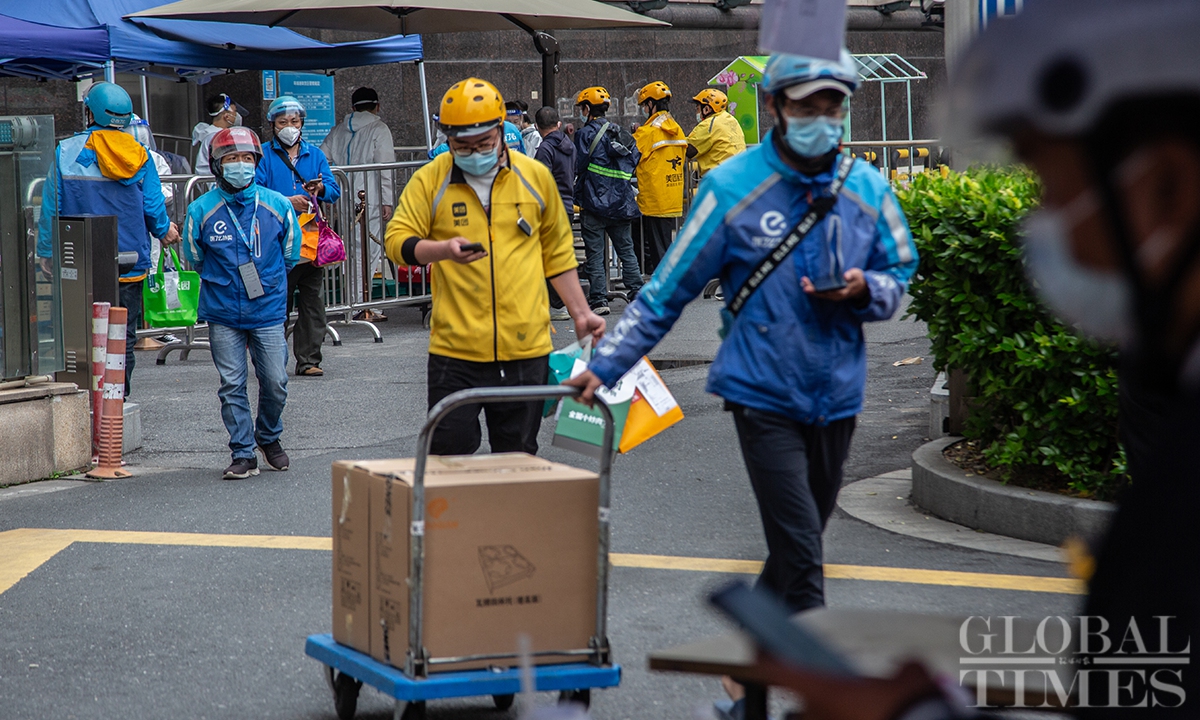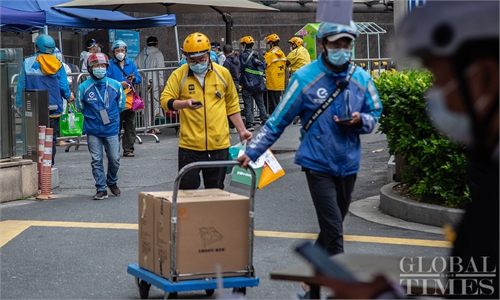China’s Commerce Ministry ramps up efforts to ensure stable supply of daily necessities amid COVID-19 flare-ups

Consumers shop at a supermarket in Xiangfang District, Harbin, northeast China's Heilongjiang Province, Jan. 25, 2021. Heilongjiang authorities have been making continuous efforts to ensure food supply amid the ongoing COVID-19 pandemic. (Xinhua/Wang Song)
China’s supply of daily necessities remains sufficient while the prices for major groceries have dropped, with responsible authorities stepping up efforts to ensure a stable market supply amid recent COVID-19 flare-ups, China’s Ministry of Commerce (MOFCOM) said on Thursday.
Shu Jueting, a spokesperson of MOFCOM, noted that the ministry has implemented measures to improve local epidemic prevention measures and secure market supply based on the government’s “20 optimized anti-virus measures”, while guiding and supporting local supply of essential products.
For instance, Shu said that the wholesale price of pork fell by 4.8 percent Wednesday, compared with the beginning of November, and the average wholesale price of 30 kinds of vegetables has fallen by 9.3 percent.
Moving forward, Shu said that the ministry will continue to increase the organization and delivery of products to regions facing severe outbreaks, and provide guidance to optimize their distribution.
In addition to the support from the government, domestic enterprises, e-commerce platforms and local authorities have all worked out measures to tackle current obstacles such as surging orders and pressured delivery capacity.
For example, Dingdong Maicai, an online grocery and fresh vegetables e-commerce platform, told the Beijing Youth Daily that the company is coordinating with more than 100 delivery personnel from low-risk cities to come to Beijing, in order to cope with the pressure in the future while following the local epidemic prevention measures.
Meanwhile, other internet-based food platforms such as Hema and Eleme have also been increasing recruitment efforts along with other measures, in a bid to alleviate the shortage of delivery personnel, according to the report from the Beijing Youth Daily.
The Beijing Municipal Commerce Bureau said on Tuesday that the city has distributed 800 tons of pork and 51,000 tons of vegetables with more to be released soon.
Authorities in Cao County, East China’s Shandong Province further optimized its epidemic prevention measures to allow local farmers to distribute their fresh produce for sale after media reports saying that a local farmer was forced to destroy 100,000 jin (50,000 kilograms) of vegetables due to over-stretched delivery capacity, bjnews.com.cn reported on Thursday.
Global Times


